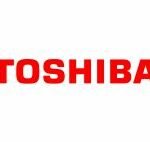Get a Quick Quote/info
Our Services
- ISO 9001 Certification
- ISO 14001 Certification
- OHSAS 18001 Certification
- ISO 45001 Certification
- HACCP Certification
- ISO 22000 Certification
- ISO 27001 Certification
- More Standards...
Hazard Analysis and Critical Control Points
HACCP (Hazard Analysis and Critical Control Points) is a systematic preventive approach to food safety. It focuses on identifying, evaluating, and controlling biological, chemical, and physical hazards throughout the food production and handling process. HACCP is recognized globally and is often a mandatory requirement for food businesses involved in manufacturing, packaging, catering, or distribution.
Implementing HACCP not only ensures safer food production but also improves operational efficiency by preventing contamination and reducing waste. It instills a culture of hygiene, documentation, and accountability within the organization.
At Startup Bharat, we assist businesses in developing and implementing HACCP systems that comply with national and international food safety regulations, such as FSSAI, FDA, and Codex Alimentarius. Our step-by-step guidance ensures your team understands the seven principles of HACCP and applies them effectively.
With HACCP Certification, your business gains a competitive edge in the food industry. Whether you’re supplying to retailers, export markets, or institutional buyers, certification reflects your commitment to food safety and quality.
Why HACCP Certification
- Prevents Food Contamination & Hazards
- Mandatory for Food Safety Compliance
- Recognized by Global Food Authorities (FSSAI, FDA, Codex)
- Improves Consumer Trust in Food Quality
- Reduces Product Recalls and Legal Liabilities
- Streamlines Food Handling and Manufacturing Processes
- Essential for Export and Retail Market Access
Benefits
- Improved Food Safety and Hygiene Standards
- Reduced Risk of Contamination and Foodborne Illnesses
- Compliance with National and International Regulations
- Enhanced Brand Reputation and Customer Confidence
- Eligibility for Export and Large-Scale Retail Supply
- Efficient Resource Management and Waste Reduction
- Structured and Documented Food Safety Practices
HACCP Certification (Food Safety Management System) from Startup Bharat
- A proactive system for identifying and controlling food safety risks
- Enhances compliance with FSSAI, FDA, and global food standards
- Helps build a strong reputation for safe and reliable food products
HACCP (Hazard Analysis and Critical Control Points) is an internationally accepted method for preventing biological, chemical, and physical contamination in food production. It ensures that safety risks are identified, assessed, and controlled at every stage of the food chain—from raw material sourcing to packaging and distribution.
Implementing a HACCP-based food safety system is not only a best practice but often a legal requirement for food processors, manufacturers, and handlers. Research shows that organizations with a robust HACCP program experience fewer recalls, better regulatory compliance, and higher customer confidence. At Startup Bharat, we guide businesses through the complete HACCP implementation process, making compliance simple and achievable.
Our commitment to food safety has helped businesses across the country and beyond to meet local and international food safety standards. Whether you are catering to domestic markets or exporting globally, HACCP Certification provides the assurance that your products are safe, consistent, and trusted.
HACCP Certification Process
Every year, Startup Bharat helps food businesses across sectors achieve HACCP Certification with a streamlined and efficient process. The procedure is broken into five clear phases that ensure regulatory compliance and food safety readiness.
Step-by-Step Certification Process
Initial Gap Assessment
We evaluate your current food safety practices and identify gaps against HACCP principles and regulatory requirements.Hazard Analysis & Planning
Our team works with you to identify potential hazards (biological, chemical, and physical) and define Critical Control Points (CCPs) in your process.Documentation & Implementation
We help prepare HACCP plans, SOPs, monitoring forms, and train your team to implement the HACCP system across all operations.Internal Audit & Corrective Actions
A mock audit is conducted to verify compliance and ensure your team is prepared. Any non-conformities are resolved before the final audit.Final Audit & Certification
An accredited body conducts the official audit. Upon successful evaluation, your HACCP Certification is issued — valid nationally and internationally.
HACCP Certification Cost
The cost of HACCP Certification depends on several factors, but at Startup Bharat, we offer competitive pricing with full end-to-end support, from planning to final audit.
Cost Factors:
✅ Business Size & Operations – Number of employees, units, or kitchens
✅ Industry Segment – Restaurant, food processing, catering, manufacturing, packaging, etc.
✅ Documentation Readiness – Whether existing systems/SOPs are in place
✅ Number of Products & Processes – More variety means more analysis and planning
✅ Audit Complexity – On-site visits, location count, and readiness level
Estimated Pricing:
Small food businesses (cafes, kitchens): ₹25,000 – ₹45,000 INR
Mid-sized food manufacturers/caterers: ₹45,000 – ₹90,000 INR
Large processing units/exporters: ₹90,000 – ₹1.5 Lakhs+ INR
Reasons to Get HACCP Certification
✅ Ensures Food Safety at Every Stage
Prevents hazards from raw material handling to final packaging.✅ Meets Legal & Regulatory Requirements
Mandatory for food businesses under FSSAI, FDA, and global standards.✅ Builds Consumer Confidence & Trust
Proves your commitment to delivering safe, quality food.✅ Reduces Risk of Product Recalls
Minimizes contamination and safety incidents that lead to financial loss.✅ Enables Entry into Retail & Export Markets
HACCP is often a prerequisite to supply large chains and international buyers.✅ Improves Operational Control & Hygiene
Brings structure, accountability, and efficiency to your food operations.
1. What is HACCP Certification?
HACCP (Hazard Analysis and Critical Control Points) Certification ensures a food business has implemented a preventive system for identifying and controlling food safety hazards.
2. Who needs HACCP Certification?
It is essential for food manufacturers, processors, caterers, central kitchens, restaurants, packaging units, and exporters dealing with food products.
3. Is HACCP certification mandatory in India?
While not always legally required, HACCP is strongly recommended by FSSAI and often required for international trade and institutional supply contracts.
4. How long does it take to get HACCP certified?
The process typically takes 3 to 6 weeks, depending on your business size, documentation readiness, and audit scheduling.
5. How long is HACCP certification valid?
HACCP Certification is usually valid for 1 to 3 years, with periodic surveillance audits to ensure ongoing compliance.
6. Can HACCP help with exports?
Yes, HACCP is globally recognized and often mandatory for exports to regions like the EU, US, Middle East, and Southeast Asia.
ISO 9001 Certification in Dubai
Companies we've worked with













